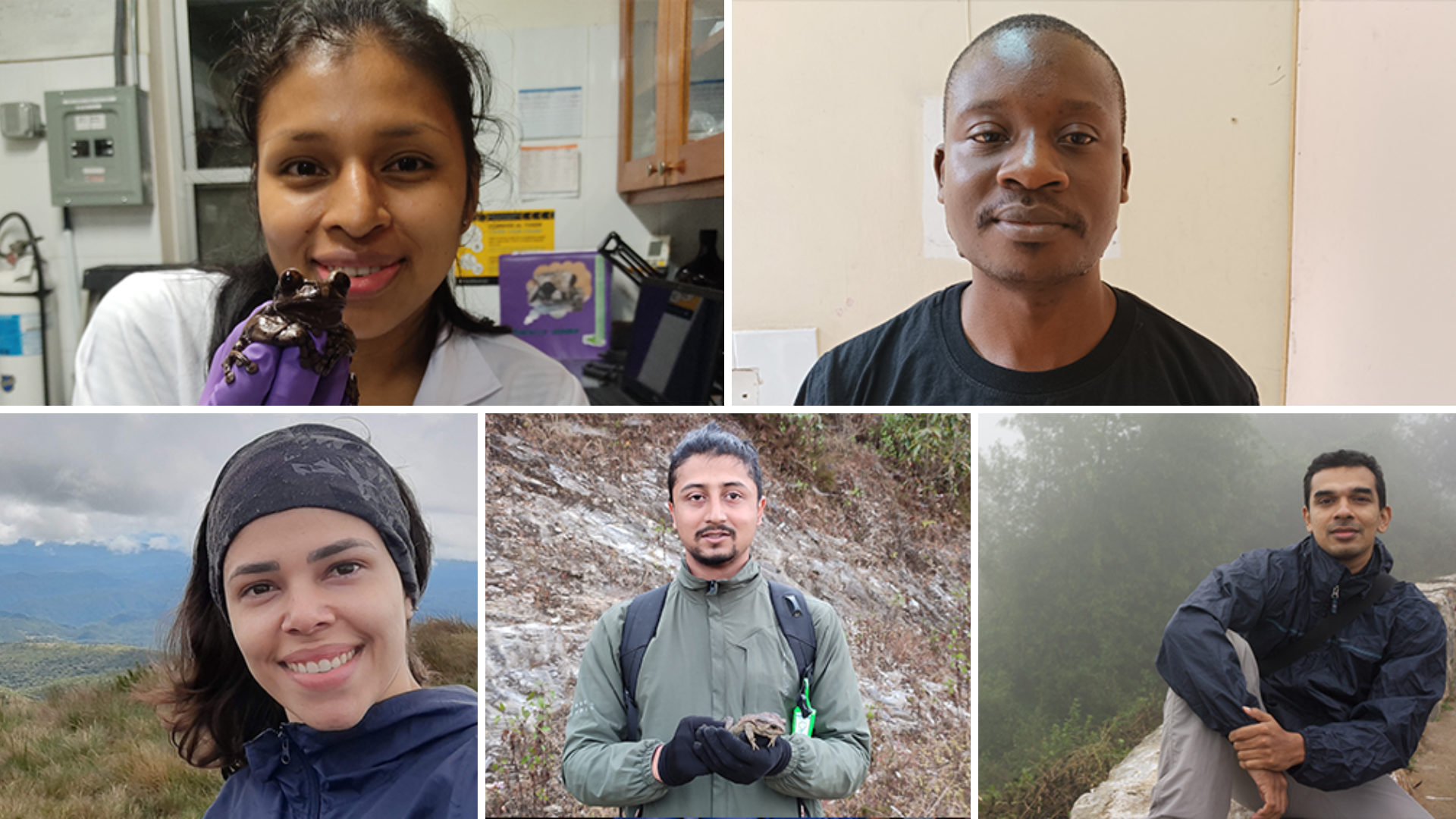The Amphibian Survival Alliance (ASA) is thrilled to announce the latest recipients of our Future Leaders of Amphibian Conservation program. These five outstanding individuals have demonstrated their dedication to protecting amphibians and their habitats around the world. Through their innovative research, community engagement, and conservation initiatives, they are making significant strides in the fight against amphibian declines.
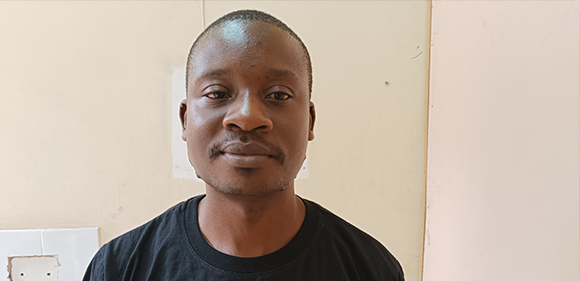
Atubwa Howard, a Kenyan conservationist, has dedicated his career to preserving the country’s unique herpetofauna. As a Research Fellow at the National Museum of Kenya and Chairperson of the Kenya Herpetofauna Working Group, he has led critical conservation projects for endangered species like the Spawls Caecilian and Mount Kenya Bush Viper. Howard’s commitment to integrating community engagement and mentoring the next generation of conservationists underscores his profound impact.
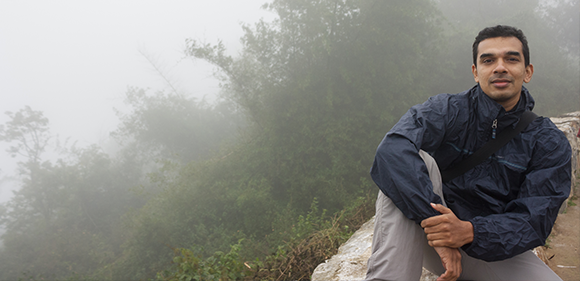
Harikrishnan S, a wildlife biologist from India, serves as the Project Manager for the Amphibian Recovery Project at the Wildlife Trust of India. He leads conservation initiatives protecting threatened amphibians in the complex Western Ghats landscape. With a PhD from the Wildlife Institute of India and experience in herpetofaunal surveys across the country, Harikrishnan is committed to studying the impacts of climate change on Indian herpetofauna and promoting community participation in conservation.
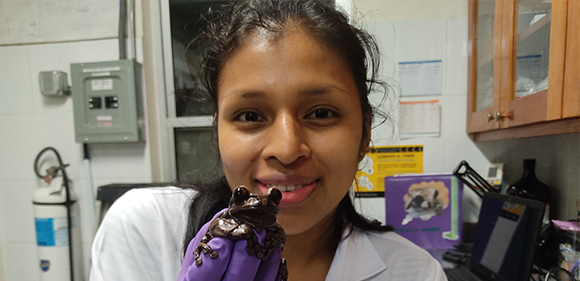
Karina Rodriguez, a Panamanian biologist, has been instrumental in developing assisted reproductive techniques for the Crowned Tree Frog at the Smithsonian Tropical Research Institute. Her work has led to the creation of a Genomic Sperm Bank for this species, a crucial step in long-term conservation. Karina’s passion for amphibians drives her to explore various fields, from ecology to infectious diseases, and motivate future generations to take action in amphibian conservation efforts.
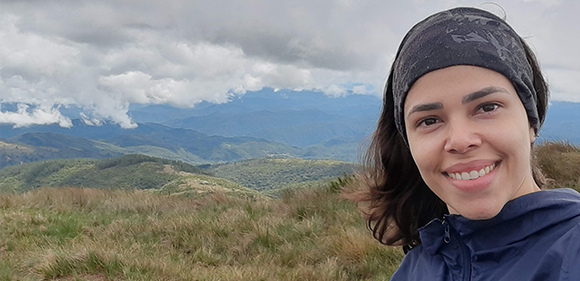
Mariana Retuci Pontes, a Brazilian scientist nearing completion of her PhD at the University of Campinas, has been at the forefront of assessing disease risks in endangered Redbelly Toads. Her work bridges scientific knowledge with conservation efforts, contributing to policy development and community engagement. As she begins her postdoctoral position, Mariana will focus on developing effective conservation strategies for the critically endangered Melanophryniscus setiba.
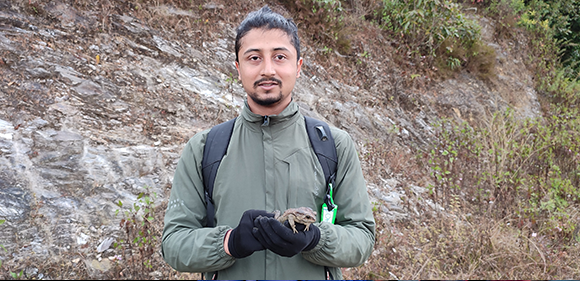
Suman Sapkota, an ecologist and conservationist from Nepal, serves as the Program Coordinator at Friends of Nature Nepal and leads the Stream Frog Conservation Project. His research focuses on understanding the breeding ecology of Nanorana rostandi and protecting their critical breeding sites. Suman is also working to address the unmanaged hunting of frogs in the mid-hills and educate indigenous communities about the ecological importance of amphibians.
The ASA’s Future Leaders of Amphibian Conservation program aims to support and empower emerging conservationists like Atubwa, Harikrishnan, Karina, Mariana, and Suman by providing funding and development opportunities. Through this program, we are helping to amplify their capacity, skills, exposure, and networks, accelerating their growth and equipping them to drive change for amphibians globally.
Please join us in congratulating these exceptional Future Leaders and supporting their important work for amphibians around the globe!

